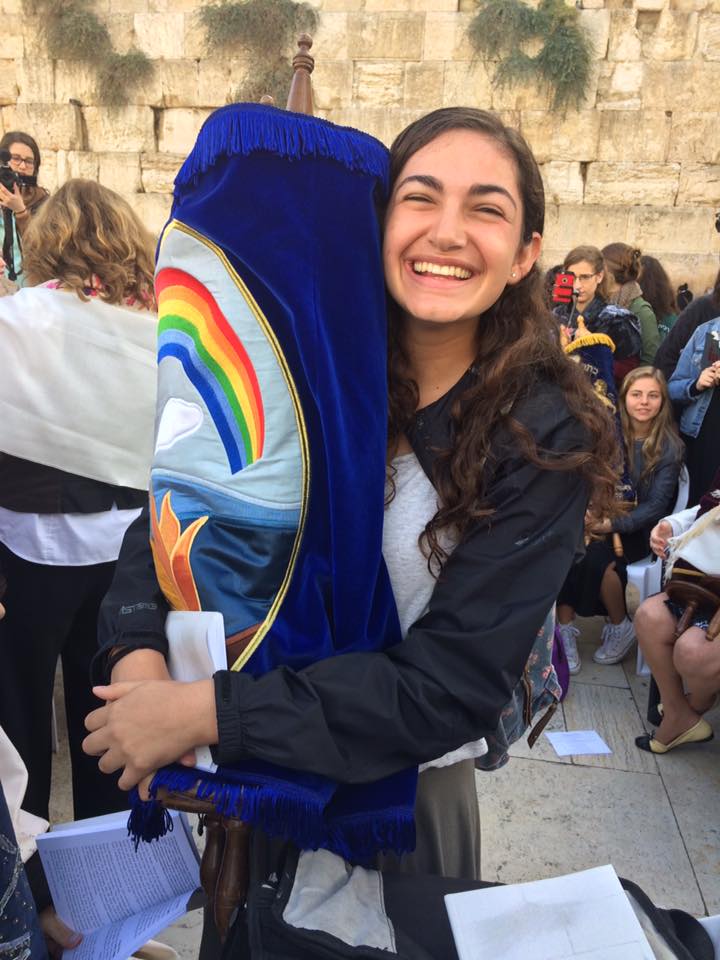
In 1818, a Jewish congregation in Hamburg established a constitution for a new temple. Energized by the emergence of the modern state and the prospect of emancipation for Jews, and inspired by Moses Mendelssohn’s philosophy, they sought to infuse winds of change into Jewish dress and customs. And there would be quite a bit of change: the liturgy would be sung in German, not Hebrew (a dead, unspoken language at the time); men, women, and children would attend services together; and there would be something akin to a confirmation ceremony for children of both sexes. Eliezer Liebermann, a prominent supporter of reform and emancipation, praised the new services in his book The Light of Splendor: “They have cleared the path of stumbling blocks and hailstones and have removed all obstacles from the way of our people by establishing a house of prayer in which they can pour out their hearts before before His Great Name, blessed be He.” This, he maintained, was not the way of assimilation and disappearance, but a path toward salvaging Judaism in a way that met people where they were: if there had been men who “illuminated the good and beneficial path. . . with sap and nectar”, then “many of our people who have left our religion in this generation because of our numerous iniquities would not have done so.”
But not everyone was a fan. The Hamburg Rabbinical Court issued a 1819 decree against the reforms. This desecration of the traditional liturgy is clearly an emotional issue for them: the dissenters’ new prayer book, which toned down the yearning for Zion, “caused great sorrow and brought tears to our eyes over the destruction of our people.” The Hatam Sofer, leading preserver of the orthodoxy, finds “changing even one detail” of the traditional liturgy “reprehensible.” The outcome is known to history: the split of Judaism into reform, conservative, orthodox, and ultra-orthodox.
It was happenstance that, right after I read those sources, I came upon Rogel Alper’s critique of Adam Sandler’s new teen comedy You Are So Not Invited to My Bat Mitzvah, and was struck by how much he played the same guilt-tripping, emotional register as the Hamburg court and the Hatam Sofer. You can read his review verbatim here, or check out this excerpt:
And how is Stacy’s Jewishness, which is presented as such a significant and vital component of her identify, expressed?
It’s an ethnic, tribal, familial issue. The Holocaust and Hitler are mentioned, of course. There’s some Yiddish slang and concepts in Hebrew, in a thick American accent. And that’s it. These are cosmetic decorations. The Jews in this film are an ethnic group. Their lifestyle is liberal. Girls are called up to the Torah and the spiritual leader is a young, kippa-wearing female rabbi. In terms of nationality they’re Americans just like Paul Simon, Woody Allen, Larry David, Adam Sandler and his daughters Sunny and Sadie Sandler. What do they have in common with Israelis?
Nothing. Israel isn’t mentioned in the film. Not even once. Stacy isn’t planning to visit the Western Wall. She doesn’t need to see the Land of Israel. She’s a Jewish woman and her Jewishness is presented as very central to her self-definition, but the country that in the Israeli Declaration of Independence is called “A Jewish state in the Land of Israel” doesn’t appear at all on the map of her values, her dreams, her self-fulfillment or the anchors of her existence.
She doesn’t yearn to “make aliyah” to Israel and doesn’t call it a “homeland.” She doesn’t long for it. She’s not in exile. Not for 2,000 years and not for 2,000 seconds. She doesn’t swear allegiance to it, doesn’t hope to “return” there and doesn’t pray to be part of the sovereignty and revival of the Jewish people in its land. She’s a Jew who already lives in security in her country. America is her homeland. She’s so American.
The inanity of Alper’s lament is obvious: it’s as if he is unaware of the fact that the United States is home to the largest Jewish diaspora, a diaspora that plays a considerable role in the the engine that drives American funding for Israel. It’s also as if he’s unaware of the fact that many U.S. teens do visit Israel, for their bar/bat mitzvah or on other occasions, with their families or with Birthright. Or as if he was never thirteen himself and cannot fathom that middle-school kids have lofty concerns closer to their hearts than the fate of Zionism. Mostly, it’s as if he’s unaware of the fact that Israel is on fire, imploding, and governed by messianic kooks, altogether not a particularly enticing place for Israeli teenagers to imagine staying and building their future there, let alone foreign teenagers to imagine actually moving there.
But let’s set all of this aside. Throughout the movie review, Alper conflates the characters’ lack of interest in Israel with their liturgy. What is it that he finds “not Zionist” or “not Israeli” about Stacy and her friends? Their feminism, as it turns out. As alienated as the Hatam Sofer by the possibility of female empowerment in a religious context, Alper seems bewildered by the fact that girls in the United States are called to the Torah (oy!) who, when looking at their rabbi, see a model of female leadership they can relate to (oy, vey!) wearing a kippa (oy, gevalt!)
Where does this lack of imagination come from in a secular, lefty man? Certainly not for lack of exciting models of alternative spirituality in Israel. Every Rosh Hodesh, the Women of the Wall (many of them immigrants from the U.S.) come to the Western Wall to joyously pray with the torah. The reform movement has a new sidur called Tefilat Ha’Adam, which is not only egalitarian, but contains many of the beautiful, Israel-rooted secular songs that Alper is familiar with. All around secular Tel Aviv, Jews who have an interested, curious, loving dialogue with their heritage gather for study dinners, creating a spiritually-engaged secular community. The Temurah Institute in Israel, like it’s U.S. counterpart, the IISHJ, ordains secular rabbis and offers great guidance to officiants and celebrants. There is a fabulous secular Yeshiva in Jerusalem and another great one in Tel Aviv. Anyone looking for a really great spiritual experience with no coercion or dogma can come learn at the Alma Home for Jewish Culture. Girls are called to the Torah in Israel. Women are ordained rabbis and officiate ceremony and ritual in Israel. Every day.
Are ordinary secular Israelis, like Alper, unaware of this flourishing spiritual environment? Where do they get the dumb idea that orthodoxy and Israeliness are one and the same? They certainly spend a lot of time pissed off at the country’s orthodox hijack, where their entire circle of life is governed by an inexorable church-and-state knot that excludes, alienates, and humiliates. Do they not know there are other options?
There is no doubt that the stronghold of Jewish orthodoxy on every aspect of spiritual Jewish life in Israel is stifling at best and life destroying at worst. The seeds for today’s messianic nuttiness, complete with its perennial essential ingredient–gender marginalization–were sown many decades ago. Israelis of all stripes, even those who are deeply displeased by this, have lived with this status quo for a very long time, and the anti-government awakening is happening decades too late. The current talk of segregating men and women in national parks is compounding the already terrifying creep of segregation in streets, public transportation, academia, the workplace, and the arts. Perhaps the nauseating flavor of state-sponsored orthodox coercion has numbed the imagination of Alper and his secular friends to the degree that they cannot imagine any loving connection to Judaism in their own country that is not saturated with these noxious elements. And if so, they have a lot to learn from Stacy and her friends.




No comment yet, add your voice below!